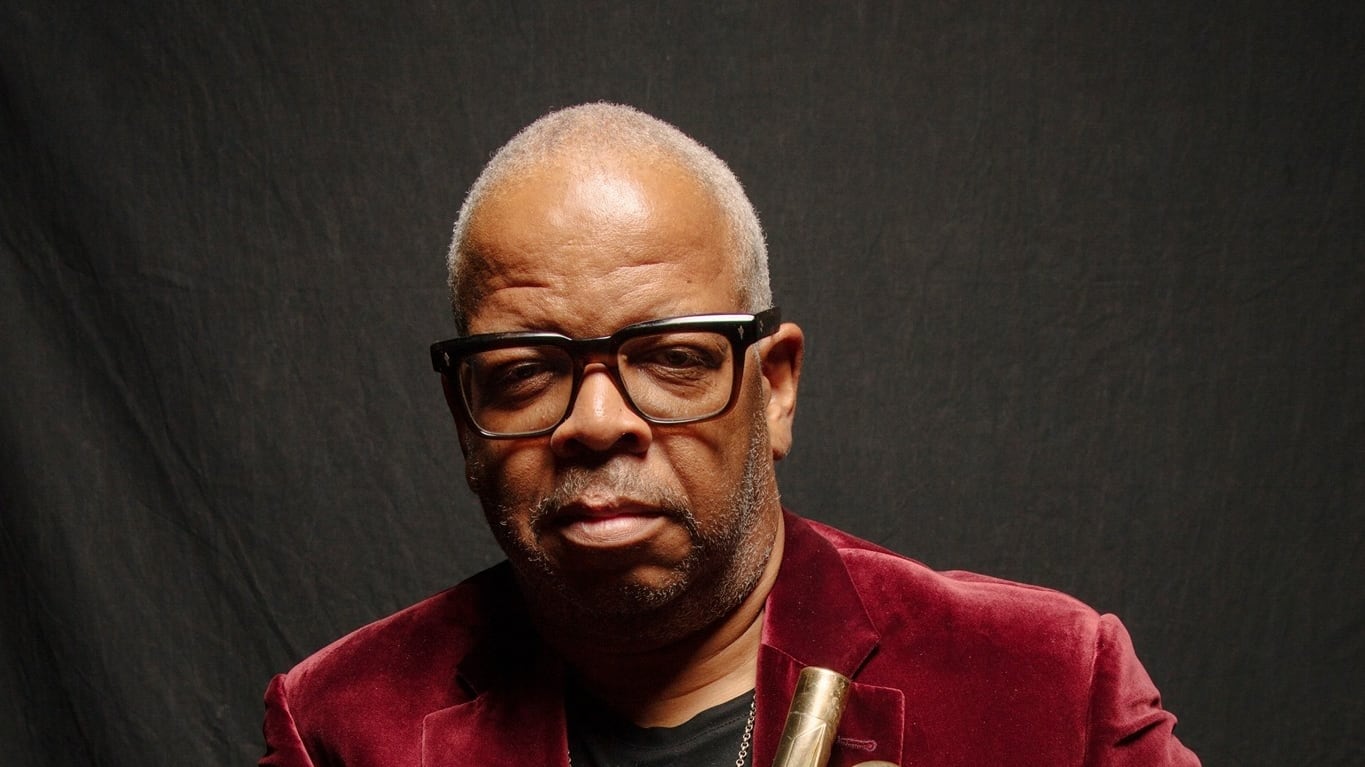Some film directors have musical signatures, working with the same composers on each project. For Spike Lee, his go-to composer is jazz trumpeter and bandleader Terence Blanchard. Blanchard, a multiple nominee for Grammys and Oscars, came to Portland on May 26th to perform with his E-Collective, the Turtle Island Quartet, and the Portland Opera Orchestra at the Keller Auditorium.
The show was billed with emphasis on the Grammy-nominated 2021 jazz fusion album Absence, which Blanchard released with the E-Collective and Turtle Island Quartet. Absence, however, was the second of the show’s three distinct segments.
The first segment consisted of suites of Blanchard’s film work, specifically, three of his collaborations with Spike Lee. Scenes from Malcolm X, BlacKkKlansman, and the Hurricane Katrina documentary When the Levees Broke were projected above the stage as Blanchard, the E-Collective, and the Orchestra played. These particular selections felt fitting, with their themes of anti-racism and social justice performed in proximity to the anniversary of George Floyd’s murder.
Before the last piece of the first segment, Blanchard introduced himself and the E-Collective. He worked in some deadpan roasts of the band members (including a 49er fan joke, as several E-Collective members hail from the Bay Area), the audience, and even himself.
The second segment consisted of three compositions from Absence. Only one of these was Blanchard’s composition. The others were compositions from E-Collective bassist David Ginyard, Jr., and from David Balakrishnan, the “Senior Turtle” of the internationally diverse Turtle Island Quartet.
Blanchard and his backing bands then took their leave from the stage for the final segment. Soprano Karen Slack and baritone Will Liverman sang selections from Blanchard’s opera Fire Shut Up in My Bones. Based on the autobiography of MSNBC reporter Charles M. Blow, these selections highlighted Blow’s relationship with his family, marred by absent parents and a sexually abusive older cousin.
Though Absence was only one part of the show, absence as a theme echoed throughout the whole performance. Blanchard was physically absent for the opera segment, but the Orchestra played on with his music. The film score segment reflected justice and peace being absent from the world, especially for Black Americans.
In the Portland Opera magazine Toi Toi Toi, Blanchard himself was quoted as saying that “sometimes my music is about the reality of where we are.” That reality uses the recent past to emphasize the ongoing errors of those who haven’t learned their history.
